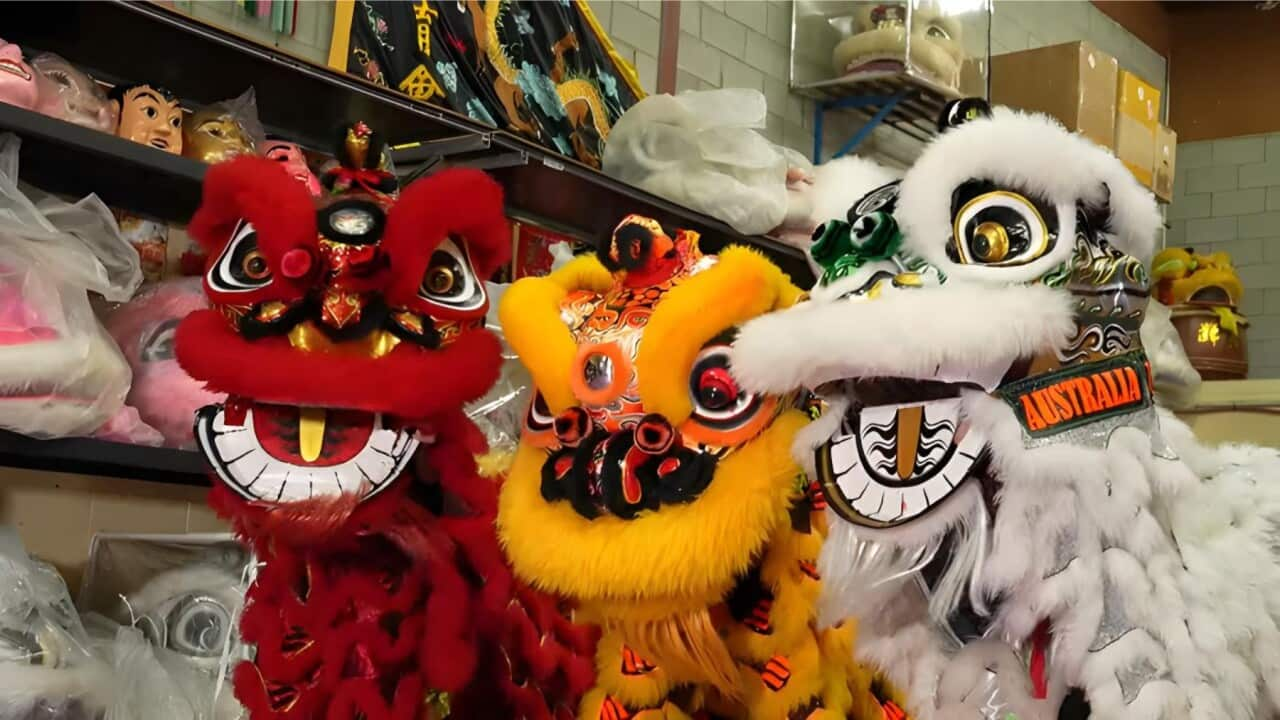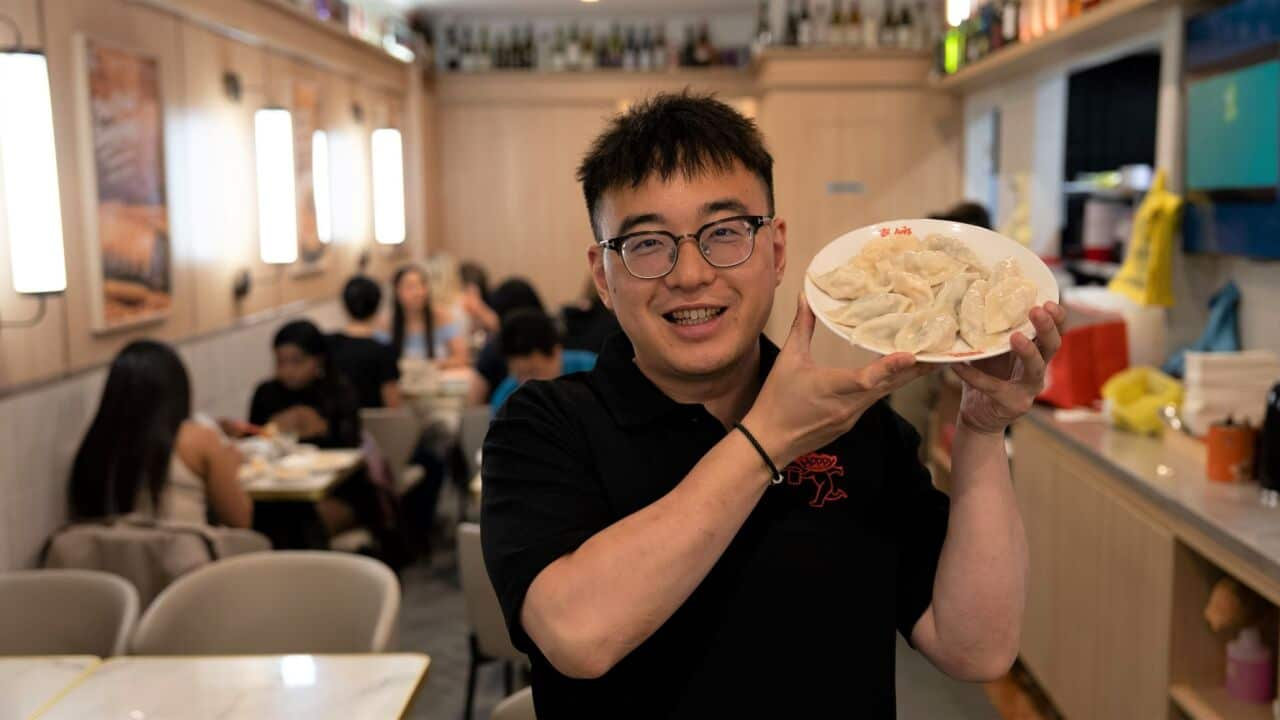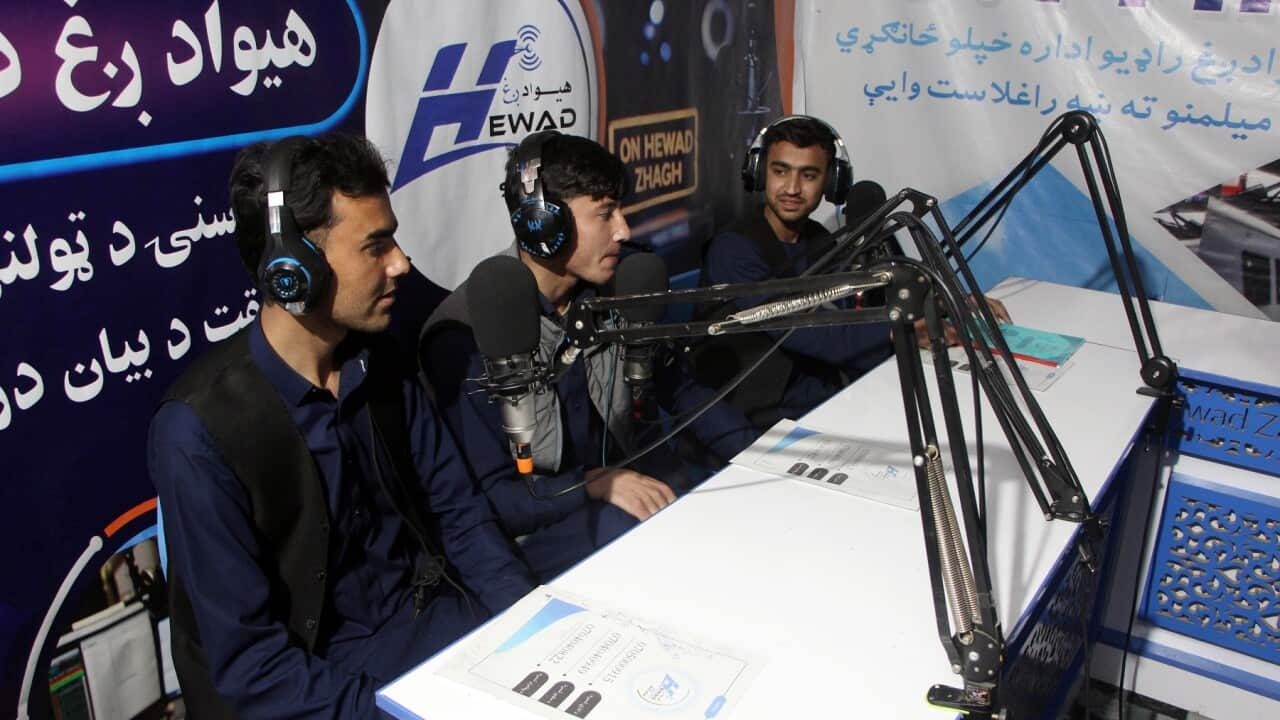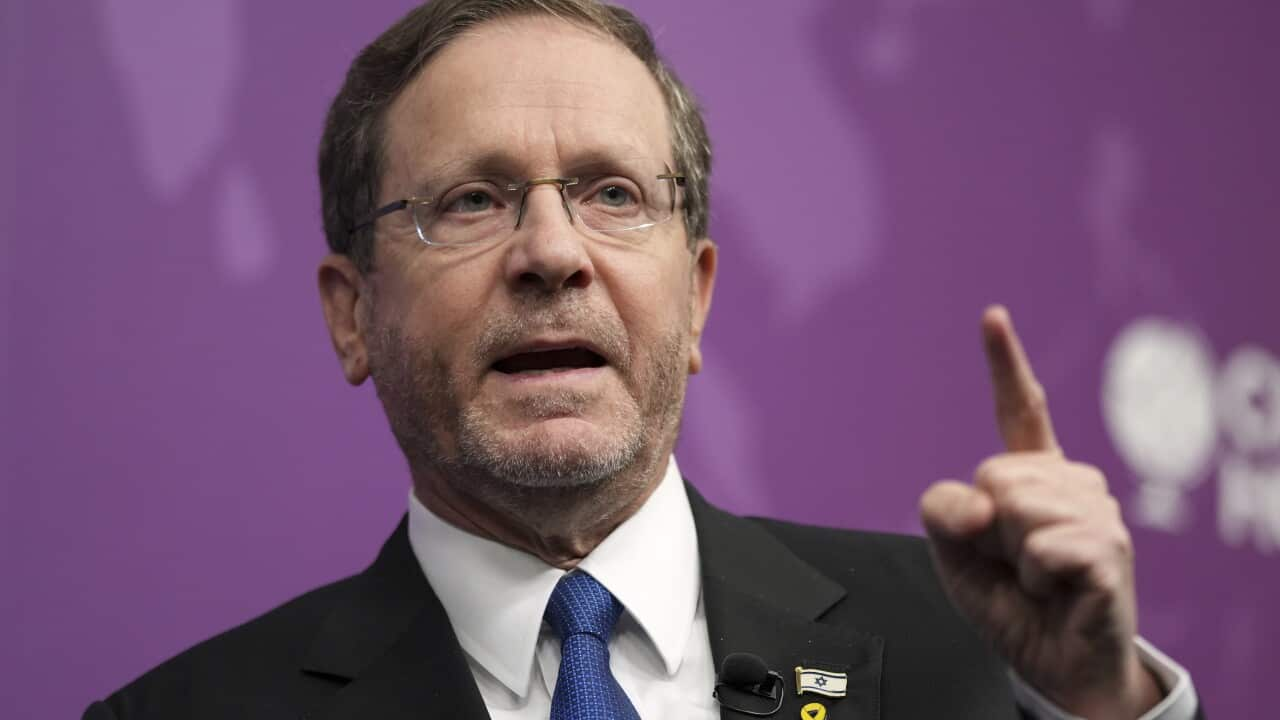Listen to Australian and world news, and follow trending topics with SBS News Podcasts.
The federal government has announced a $30 million initiative to boost the number of vocational education trainers.
It comes as the federal government launched National Skills Week to promote options for lifelong learning for Australians amid ongoing skill shortages.
For those from migrant and refugee communities, the upskilling opportunity is being viewed as an exciting new chapter in their life in Australia.
TRANSCRIPT
After moving from Afghanistan to Australia, Fatima Sultanzi was looking for a way to keep fuelling her passion and love for fashion.
She had studied fashion design in Afghanistan - and was open to upskilling.
So when her friends told her about the fashion design course at TAFE New South Wales in collaboration with local fashion brand, The Social Outfit, she signed up immediately.
"I learned many things here in The Social Outfit. Different kinds of things, like (learning how to make) suits, coats, T-shirts, pants, and (using) machine. Every (sewing) machine, I can use it."
This year, Ms Sultanzi made a suit for the Governor-General of Australia Sam Mostyn, who has also worn clothing from the brand during her swearing-in ceremony last year.
Amy Low is the chief executive of the brand.
Through the partnership with TAFE New South Wales in the past decade, her brand has supported and upskilled over 450 migrant women interested in Australia's fashion industry.
"What we are able to deliver in that partnership with TAFE here is the women who may be comfortable sewing on a domestic machine, will have their first experience under supervision with the industrial sewing machine. And in gaining both technical skills, they are also really experiencing what it might be like to work as a machinist, and to begin a career in that industry."
The story of Ms Sultanzi and The Social Outfit is one that the federal government wants to see more, as they announce more investments in the country's vocational education training sector - or VET sector - during its launch of the 2025 National Skills Week (25-31 August).
Last year's theme was 'VET as a game changer'. This year, it is 'Exploring All the Options'.
The emphasis on the different and varied opportunities for all Australians to access training and upskilling, regardless of their location.
Speaking at the National Press Club, the Minister for Skills and Training Andrew Giles says since fee-free TAFE places became available in 2023, there has been over 650,000 enrollments across the country.
"Free TAFE is breaking down cost barriers and de-stigmatising the idea that learning is only for the young. More than 125,000 Australians aged 45 and over have enrolled."
Mr Giles used his National Press Club speech to announce a $30 million investment in the VET trainer workforce, aiming at increasing the number of electrical and construction VET teachers, and First Nations VET teachers.
He also wants to see a sustainable skill training system, backed by both educational institutions and industries, to support the idea of lifelong learning.
"It's a concept that knits together how we should be thinking about supporting people to navigate the changing world - on their terms. Moving beyond the narrow sense of equipping a person to perform a role. Because jobs are changing and we now know people can now expect to move between industries, not simply between employers."
Brian Wexham is th e chief executive and chair of National Skills Week.
He says lifelong learning is key - and will be needed more than ever, as developments like AI's impact on work and workers drive demand for upskilling and reskilling.
Mr Wexham says he also hopes there will be major improvements in the perception of the value of the VET sector.
"What we need to do, and what the government need to do, we need to get those messages across, and the story across, of the success of people coming out of vocational education and what they've been able to do. I mean to go to TAFE isn't a failure. It's a success story."
Mr Wexham also says VET can be helpful for the settlement of refugees and migrants - and that's the exact story of Samia Salhaz.
After being a chef in Syria for 20 years, Ms Salhaz moved to Australia in 2022, and began a traineeship with the Bread and Butter Project, a social enterprise that offers baking training to refugee women, in partnership with TAFE New South Wales.
After graduation, she secured a job with the enterprise to train other women.
"The experience for me, too important to do training in Australia. I think Australian government believe in training more than anything."













